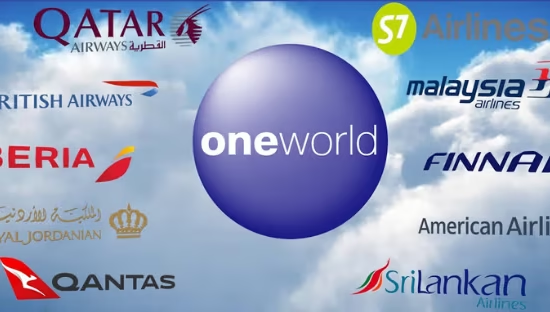
Turkey Cracks Down on Global eSIMs — 8 Providers Blocked
In a significant move affecting international travelers and digital nomads, Turkey has blocked access to eight major global eSIM providers. The decision, made by the country’s telecom regulator BTK, restricts users within Turkey from accessing or purchasing eSIM plans via these platforms.
According to the Freedom of Expression Association (İFÖD), the blocked providers include:
These platforms are popular among travelers for offering flexible, affordable mobile data without relying on local SIM cards or traditional roaming fees. The ban means users must now install eSIMs before entering Turkey, or risk being left without digital connectivity unless they switch to local telecom providers.
This restriction marks a growing trend of national governments asserting more control over cross-border digital services—especially those that bypass domestic telecom infrastructure.
Why is Turkey doing this?
The purpose appears to be twofold:
- Internet control: eSIMs issued by foreign companies route data through offshore networks, bypassing local censorship and surveillance. Blocking eSIM access mirrors prior bans on VPNs and other circumvention tools.
- Suppressing dissent: This aligns with a broader strategy of suppressing access to unregulated or censorship-resistant digital services—similar patterns seen in website and VPN blocks.
Who is affected?
- Turkish citizens traveling abroad: unable to buy eSIMs domestically due to blocked websites.
- International tourists: can’t easily purchase or top up eSIMs once in Turkey—unless pre-ordered before arrival.
Turkey enforces strict telecom compliance rules, including expectations that SIM and eSIM profiles be registered and managed through local infrastructure — potentially using systems like SMSR (Subscription Manager Secure Routing), which ensures user profiles are routed and stored in-country.
One Reddit user summarized:
“Use a VPN”
And another noted:
“The SIM works as long as you downloaded it before arriving.”
What still works?
- eSIMs already downloaded and activated before travel still function normally.
- The ban targets web access to provider sites, not the underlying telecom infrastructure.
Traveler tips
- Buy and install eSIM before arrival in Turkey. Most providers allow activation prior to landing.
- Use a VPN, though note that Turkey also filters many VPN services—a cat-and-mouse game that can limit reliability.
- Alternatively, switch to a Turkish physical SIM upon arrival through mobile carriers like Turkcell, Vodafone, or Türk Telekom.
- Consider offline connectivity options (e.g., local Wi‑Fi, hotel hotspots) if mobile data is critical.
Broader implications
Turkey’s latest move is part of an escalating restriction on digital freedom and internet sovereignty, fitting a pattern of:
- Blocking hundreds of websites and social media platforms,
- Imposing taxes and regulations on online services,
- Restricting VPNs and encryption tools,
- And targeting dissenters for online speech.
For travelers, this means proactive planning is essential: once in Turkey, your ability to secure mobile data is severely limited without prearranged options.
Summary table
| Traveler Type | Strategy |
|---|---|
| Pre-arrival planning | Buy & install eSIM before landing |
| Already in Turkey | Use a physical SIM; search for open Wi‑Fi |
| Concerned about freedom | Consider VPN—beware of spotty reliability |
Final takeaway: eSIM Bans Signal a Shift in Connectivity Power Dynamics
Turkey’s decision to block access to eight major eSIM providers—including Airalo, Holafly, Nomad and others—highlights a growing global tension between borderless digital services and national regulatory controls. This isn’t an isolated event.
Earlier in 2024, India’s Telecom Regulatory Authority (TRAI) also cracked down on unauthorized eSIM services, citing security and regulatory compliance concerns. Like Turkey, India emphasized sovereignty and consumer protection, effectively banning foreign eSIM offerings that weren’t aligned with its telecom licensing structure.
These moves point to a broader trend: governments are increasingly wary of digital products that bypass traditional telecom channels, especially those that:
- Route traffic through offshore servers (potentially evading surveillance),
- Disrupt domestic telecom revenue streams,
- Or pose security risks due to a lack of oversight.
Global Trend Watch
- Sovereign tech control is rising: From Russia’s internet “sovereignty” laws to China’s great firewall, and now eSIM restrictions in Turkey and India, regulators are asserting control over digital infrastructure.
- Roaming disruption under scrutiny: eSIM providers often offer cheaper global plans than local operators, challenging legacy business models. Regulatory pushback may continue.
- Digital nomads and tourists caught in the crossfire: These user groups rely heavily on flexible connectivity and may face increasing friction across regulated markets.
What’s Next?
- Expect more countries—especially those with tightly controlled telecom sectors—to scrutinize or restrict foreign eSIM platforms.
- Global eSIM providers may need to localize their operations, partnering with licensed local carriers or setting up region-specific offerings to remain compliant.
- VPN usage will likely rise in restrictive markets, although these too are often targeted by censorship.
In the near future, the eSIM industry may face a dual challenge: balancing global accessibility with local compliance. While eSIMs offer unprecedented freedom and flexibility for travelers, regulators are now stepping in to redraw the boundaries of that freedom.
For now, travelers are advised to install their eSIMs before entering markets like Turkey or India—and providers should begin anticipating a more fragmented and regulated landscape in the years ahead.










